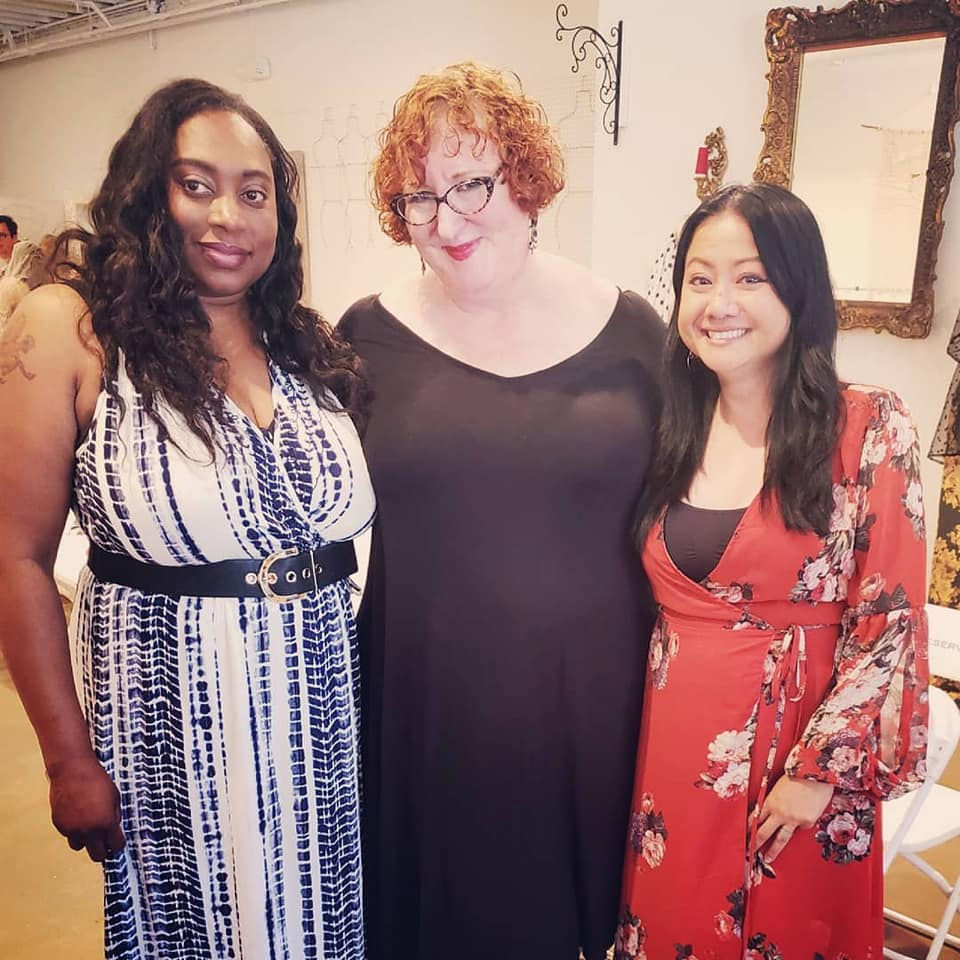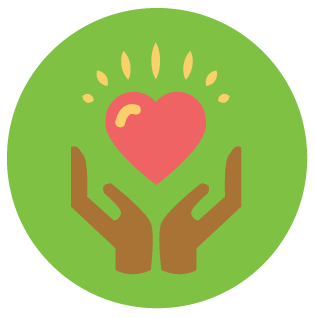Conversations of Color
- Headmistress Jill Miller

- Jul 14, 2019
- 5 min read

My friends Marquetta and Nina are always up for a conversation about anything!
Some of my most impactful experiences have come from conversations. That was certainly the case at the Conversations of Color panel discussion on Saturday, July 13. I moderated an inclusive panel of four women who agreed to talk candidly about their experiences around race relations and what we can do to support each other. Another 15 women came to join in the conversation, and I’m sure all of us are still processing what we got out of the afternoon. While the conversation went on for two and a half hours, we were so engaged; it could have kept going a lot longer.
I love that we can come together to discuss big issues at the Finishing School for Modern Women. Moderating the discussion is challenging and a big responsibility to make sure everyone has the chance to speak their mind if they want. Although there were many backgrounds and ideological differences between us, everyone kept an open mind. The conversation was respectful, profoundly honest, and eye-opening. A big thank you to everyone who participated for being vulnerable enough to join in.
While I’ve just begun to mull it all over, here are a few of my takeaways from the day:
It takes more than love.
While there’s a lot of talk about love triumphing over hate, love is complicated. It’s easy to “love” the people we agree with, but what about people who have a different viewpoint than us? Love means different things to different people. For some people, that love must be earned. Because my fundamental nature is to love people, I try to take people on an individual basis, usually loving most people automatically, until the person’s actions change my mind.
During the panel discussion, it was brought up that respect for our fellow humans is more important than love. I’m still mulling that over. For me, respect is something that’s earned. However, I do think giving people the benefit of the doubt is showing respect for the values of human dignity, and that respect is a vital part of human rights.
Treating someone with dignity means asking for and listening to their concerns, including the people who will be impacted in conversations and decisions, and respecting their rights to make their own choices. Dignity is our inherent value and worth as human beings; everyone is born with it.
We all want to be treated as something of value. It is our highest common denominator. This shared desire to dignity transcends all our differences, putting our human identity above everything else. Our need to be seen, heard, listened to, and treated fairly is the glue that holds our relationships together. To be recognized, understood, and to feel safe in the world is what gives our lives hope and possibility.
In getting curious about dignity, I found this great website, that has profound information on the topic along with a Declaration of Dignity, where you can display “your commitment to treat yourself and others as worthy human beings who deserve fair treatment.” I signed it.

Words have power.
Perpetuating stereotypes is so ingrained, that we may not even realize we’re doing it. That certainly happened to me at the panel discussion. It is my biggest takeaway from the day and my biggest regret.
I have always thought the label, “angry black women” is such a ridiculous one. I’ve always thought that if my DNA were different, I’d be the angriest black woman you’ve ever met. The way the systems are stacked against these women, including primary medical care, would be enough to make anyone mad.
So, when I met Mary, and she introduced herself to me that way, I connected with her immediately. I love people who are unafraid and unapologetic to show the world their true, authentic self – and Mary is living that. When asked how she refers to herself when it comes to race, Mary’s answer was “Black Queen,” so much so she has it tattooed on her leg.
I hold the story of how I met Mary close to my heart for her authenticity, but I don’t think of her as angry. I worked with Mary on lining up speakers for the Women’s March. I said “yes,” when she asked me to be on the Black Women Empowered panel about race relations and mental health. She let me use the idea of that panel and agreed to be on the one at the Finishing School. I have a lot of respect for Mary, love working with her, and will continue to look for ways for us to collaborate. Would I do that if I really thought she was an angry, unreasonable, hostile person? Of course not.
I made the mistake of telling everyone that story when I introduced Mary for the panel. Because it means something entirely different for me, I didn’t realize the power of those words. I didn’t recognize how it might affect the way the students at the panel saw her; how we’ve unconsciously been taught to think about women who won’t back down their passion when it comes to injustice. Since this is one of the ways women are held back, I feel horrible for attaching that label to someone I admire so much.
I’ve apologized to Mary for my ignorance, and of course, she has given me eternal grace. She says she’s comfortable with owning that title, though I am not comfortable about being the one who gave it to her. This was a powerful lesson for me. Fortunately, passion and compassion are closely related, and Mary is fluent in both languages.
We have to get comfortable with being uncomfortable.
The things that are going on in the world are very hard to look at. They’re unpleasant, and we want to turn away, ignoring the reality of other’s as we turn back to our safe, insolated worlds. That’s understandable. I have to avoid the news from time to time when it all just becomes too much to bear.
What I’m talking about, though, is facing the things that make us uncomfortable about ourselves. It’s very easy to get defensive about specific words and phrases that feel like it puts some of the responsibility on our shoulders. Feeling uncomfortable is an important message that we need to pay attention to. Rather than getting angry and defensive, maybe should ask ourselves why, and examine our biases. Change, learning, and growth come from being uncomfortable, so we should embrace it.
Sometimes the best thing to do is listen.
I am always amazed at the insights we get when we simply stop and listen. Our society is so fragmented now. It seems like we’re living in a different world when it comes to how we see things. People are dividing into “us” vs. “them,” making the “them” less than human so we can justify our viewpoint. If we took the time to sit down and talk, we’d find that we’re much more alike than different, especially when it comes to the basic things we need in life to survive and thrive.
While we didn’t come up with any earth-shattering ideas for how we can support each other, I think that just talking about it gave us more insights into what it’s like to walk a mile in her shoes. Learning to listen is a fantastic start.
Will we do this program again in the future? I’m not sure. Sometimes trying to repeat a magical moment in time doesn’t work on the second go ‘round. I do know that everyone I’ve heard from since yesterday wants to get back together to talk some more. What do you think? Would you come to a panel discussion like this if I do it again? Help me decide. Email if you’re interested.
Make the world a better place where you are,
Jill



Comments